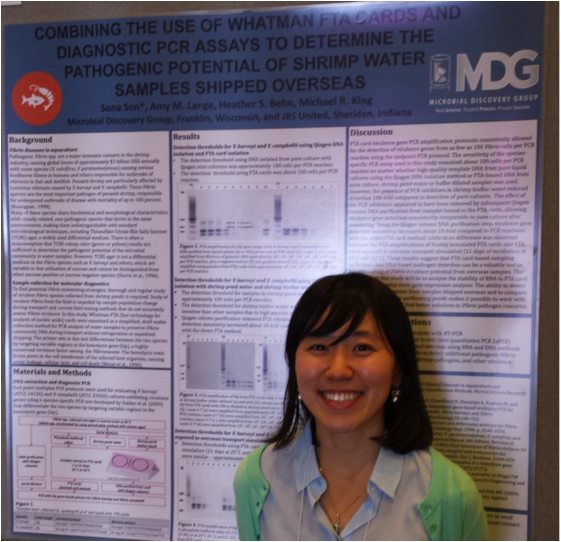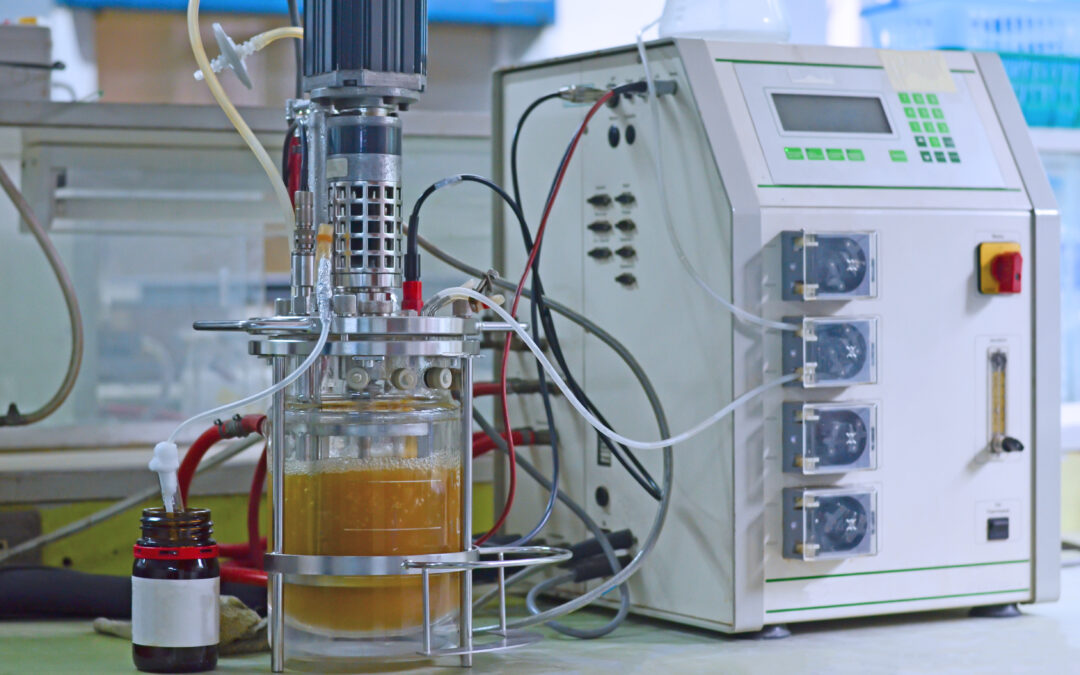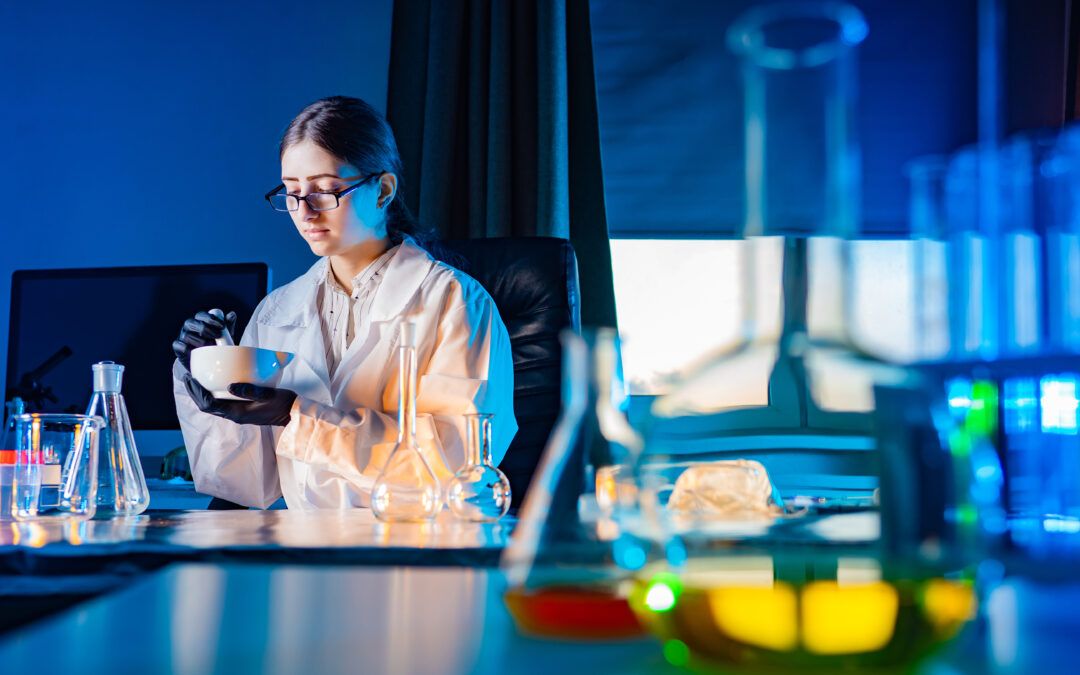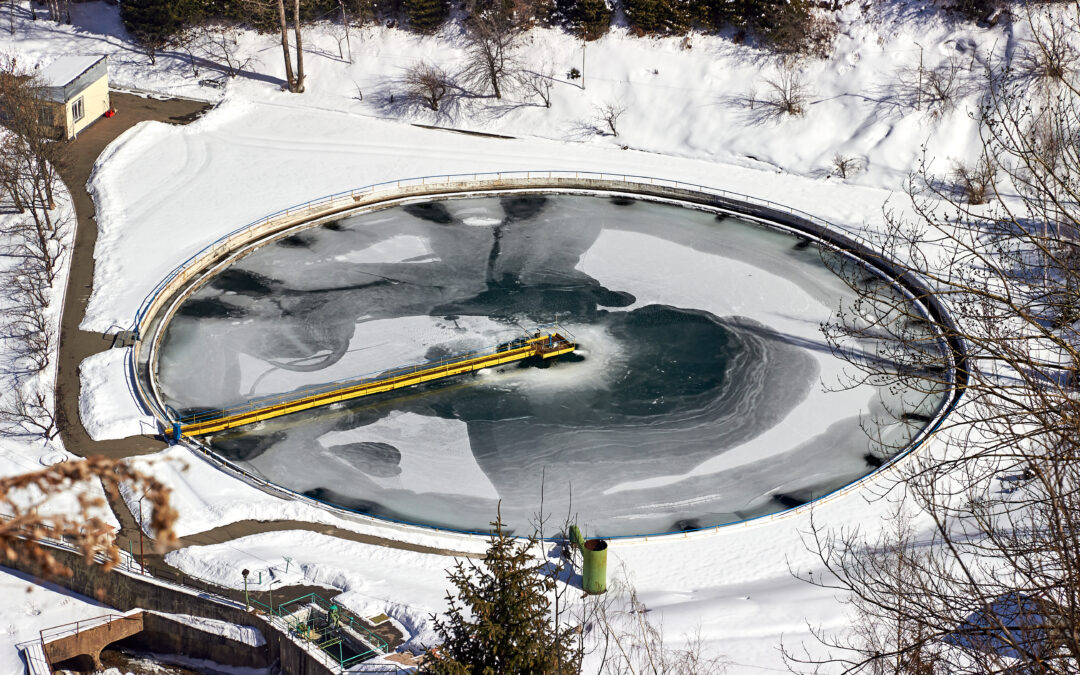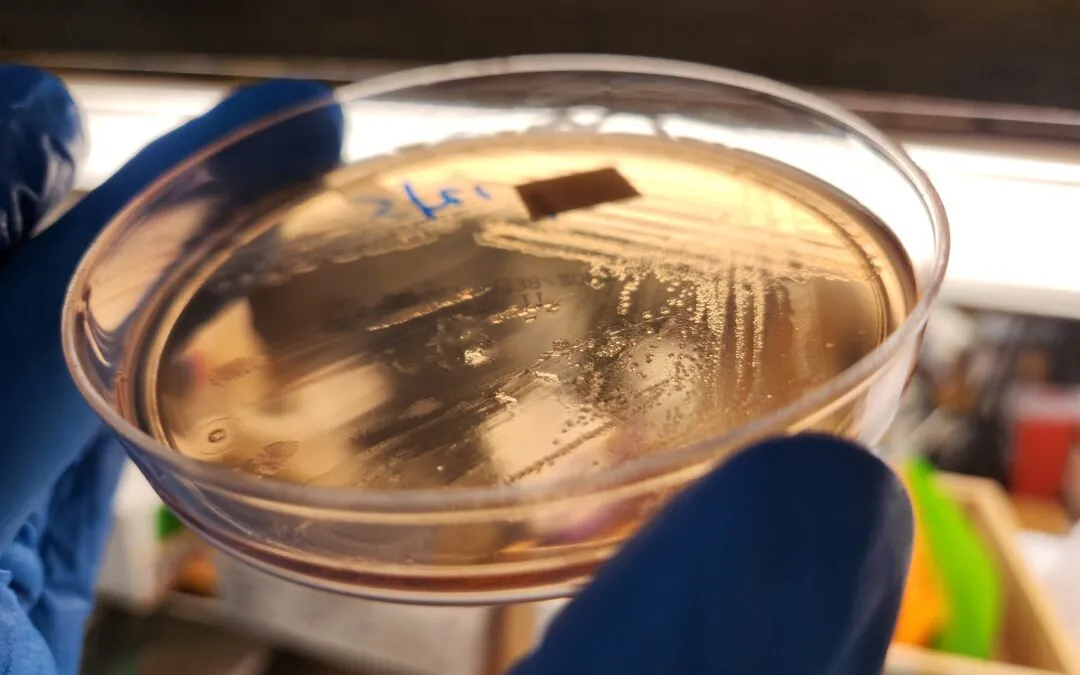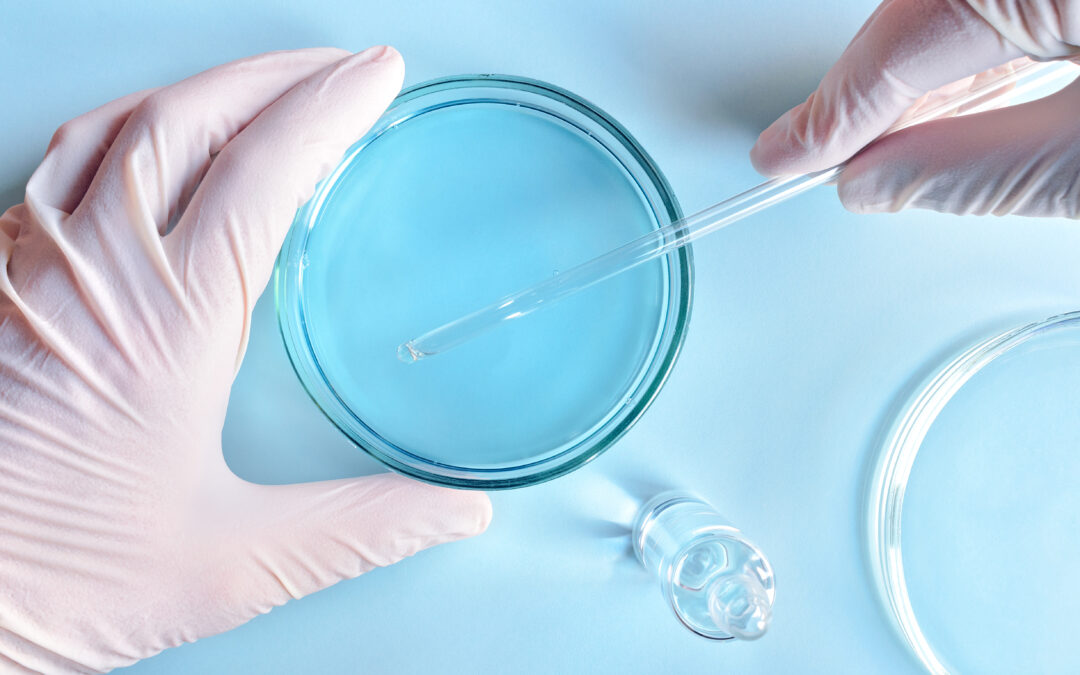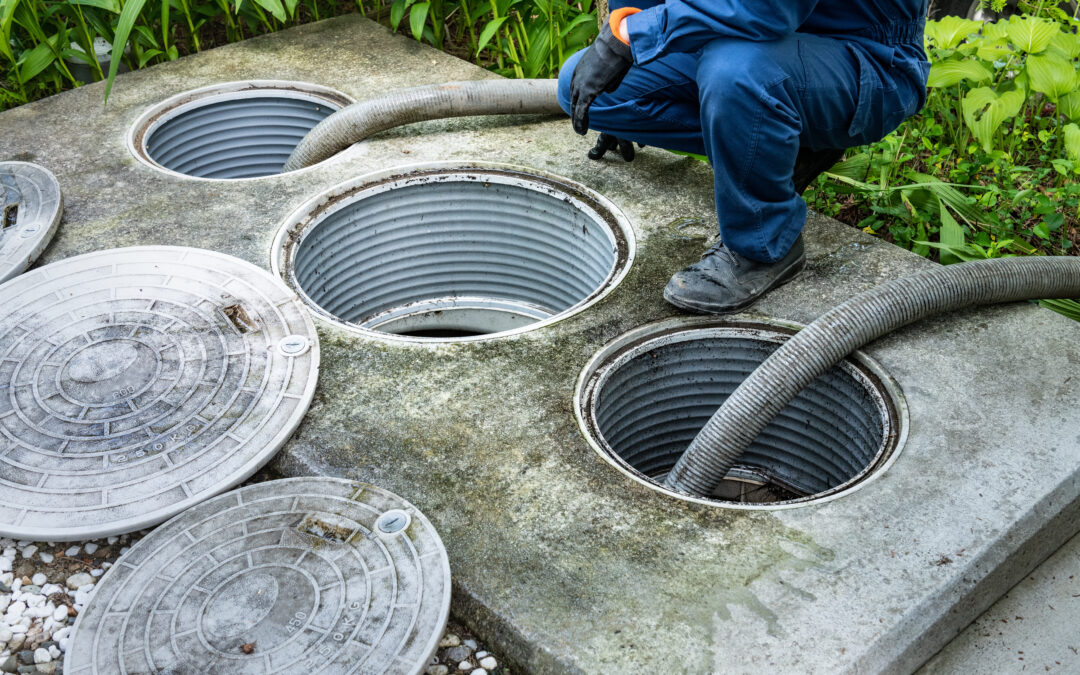Sona Son, Technical Manager at Microbial Discovery Group, presents a new MDG Technology Development at the Aquaculture America Conference Feb 9-12th, 2014. See poster abstract below. If you’re dealing with problems associated with Vibrio aquaculture pathogens, we look forward to discussing our work with you. Please contact us at info@mdgbio.com.
COMBINING THE USE OF WHATMAN FTA CARDS AND DIAGNOSTIC PCR ASSAYS TO DETERMINE THE PATHOGENIC POTENTIAL OF SHRIMP WATER SAMPLES SHIPPED OVERSEAS
Sona Son, Amy Lange, Heather Behn and Michael King
Microbial Discovery Group and JBS United
Pathogenic Vibrio spp. are a major economic concern in the shrimp industry causing global losses of approximately $3 billion USD annually. To find potential Vibrio minimizing strategies, a thorough and regular study of virulent Vibrio species collected from shrimp ponds is required. Studies of virulent Vibrio from the field is impeded by changes in the microbial community during sample transport and current field testing methods that do not accurately assess Vibrio virulence. In this study, the use of Whatman FTA (fast technology for analysis of nucleic acids) cards to preserve Vibrio community DNA during transport was combined with a Vibrio harveyi and Vibrio campbellii haemolysin virulence gene based multiplex PCR assay1. Successful protocols will later give rise to quantitative PCR (qPCR) methods that can be used to quantify pond sample virulence potential.
Serial dilution of Vibrio cultures exhibiting virulence genes and end point multiplex PCR protocols were used to obtain semiquantiative data for evaluation. Closely related Vibrio harveyi and Vibrio campbellii culture DNA extracted from FTA cards was compared to DNA extracted with Qiagen DNA isolation columns. FTA card DNA extractions were also used to detect differences between pure cultures and cultures diluted in shrimp pond water. Further, detection differences were tested between freshly inoculated FTA cards and cards exposed to an overseas shipment simulation (21 days heat incubation at 25ºC and 32ºC). FTA card virulence gene PCR amplification protocols allowed for the detection of virulence genes from as few as 100-600 Vibrio cells per milliliter using the endpoint PCR protocol. The sensitivity of the virulence gene assay using pure culture template DNA from FTA cards was similar to results obtained using Qiagen DNA isolation columns, with a detection limit of approximately 100 cells/ml. The presence of PCR inhibitors in shrimp pond water reduced detection 100-fold compared to the detection of pure cultures. The effect of the PCR inhibitors appeared to have been removed by subsequent Qiagen column DNA purification after the FTA card, allowing virulence gene detection comparable to pure culture. Little to no difference was observed between the PCR amplifications of freshly inoculated FTA cards and inoculated cards exposed to the overseas transport simulation. These results suggest that these methods could be applicable to Vibrio virulence potential studies as applied to FTA cards for transporting overseas samples. Further studies receiving actual samples from overseas shipments are warranted.
1. Haldar, S. et al. (2010) Development of a haemolysin gene-based multiplex PCR for simultaneous detection of Vibrio campbellii, Vibrio harveyi, and Vibrio parahaemolyticus. Letters in Applied Microbiology 50:146-152.
